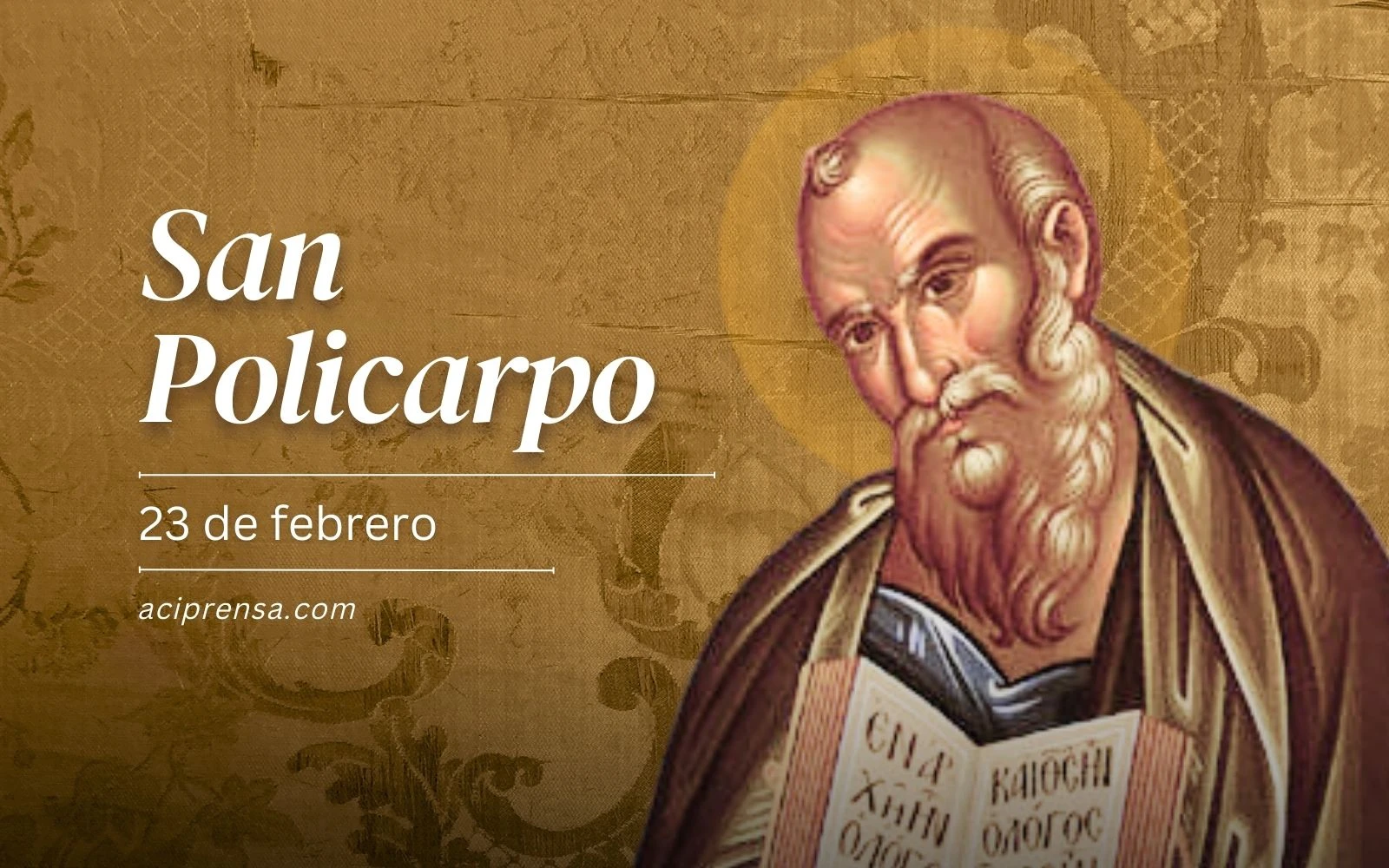We have news about the last years of his life thanks to Eusebius of Caesarea, precursor of what we know today as the history of the Church, an indispensable discipline. Eusebius points out that in 154, Saint Polycarp visited Rome to dialogue with Pope Anicetus about the unification of the date of Easter celebration between the Christians of the East and the West. As both could not agree on a date that had universal validity, each decided to continue with their traditional dating and, rather, remain united in charity.
We also know from Eusebius of Caesarea that Polycarp was the recipient of the chains with which Saint Ignatius of Antioch was bound on his way to martyrdom, and of a letter from him that would gain great importance among the first Christians.
Surrender in Love
The martyrdom of Saint Polycarp occurred on February 23, 155. That day the saint was taken before the proconsul Decius Quadratus, who offered to spare his life if he renounced Christ: “Think of your age,” said Decius, “change the thought. Swear and I will release you. Curse Christ.” Saint Polycarp replied: “I have served him for eighty-six years, and he has done me no harm. How could he curse my king who saved me? Hear it clearly. I am Christian”.
